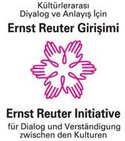Hassan Hanafi
Hassan Hanafi is known to be a severe critic of globalization. According to the professor of philosophy at the University of Cairo the phenomenon has no positive aspects at all

Hassan Hanafi says that - contrary to today's Western hegemony - the Muslim empire perserved cultures, languages and religions Dr. Hanafi, to begin with, what is your view on globalisation, or rather, what does globalisation mean to you? Does it signify the Westernisation, or even the Americanisation, of the whole world?
Hassan Hanafi: Globalisation is Western hegemony. At the beginning of the modern age, the West challenged the entire world in a series of events starting with the fall of Granada and the discovery of the Western half of the world, i.e. the Americas, and what is described as geographic discovery. Europeans acted as though the world hadn't existed before white man arrived in the western hemisphere.
Later on, fleets of ships embarked on journeys for the purpose of exploration from Genoa, commerce expanded in the 17th century, Algeria was colonised in the 19th century, Britain wiped out the Mogul empire in India and besieged the entire old world. In merely two centuries Europe became master of the world by means of seafaring, after the crusades in the 11th and 12th century had failed.
Globalisation is one of the common forms of Western hegemony, not only achieved through military action or the economy but also, the market. Therefore, after the age of blocs came to an end in 1991 and socialist systems collapsed, capitalism emerged as the winner. Accordingly, international capitalism was legitimised and justified on the premise of market unity and its laws, profit, competition, etc. The group of seven or eight industrialised nations became the hub of the world and transformed all of Africa, Asia and Latin America into markets.
Globalisation is not just the Westernisation of the world as a concept of dissemination from the core to the periphery. Nor is it mere Americanisation, as the USA is now the only existing bloc which challenges the rest of the world. The threat is actually greater because only one path, one opinion and one ideal is being followed. And anyone who dares to defy, for example, Afghanistan, Iraq, Syria, Lebanon, Egypt, Sudan, Saudi Arabia or Yemen must expect military aggression, either through the United Nations, or outside the United Nations.
Globalisation is one of the forms of Western hegemony based on the laws of the market and military power, a concept which goes back to former imperialism.
If we accept the notion of globalisation, would we not be able talk about Islamic globalisation - especially if we think of traditional Islamic military campaigns or conquests and the expansion of Islamic religion through trade? Widespread belief claims that Islam wanted to rule the world, i.e. Islamic globalisation existed before present-day Western globalisation.
Hanafi: Frontiers have been crossed all over the world throughout history. When Alexander the Great left Athens to conquer Egypt with his troops, he built Alexandria and then moved on to Central Asia and India. This was a form of Greek globalisation. But the goal was for Greek culture to gain prevalence even outside of Greece, and to replace "barbaric" culture of the local ethnic groups.
Pax Romana followed a similar pattern. The Romans wanted to do the same and make the Mediterranean a Roman sea. Then, Islam came and spread after the Persian and Byzantine wars, just as the two major Eastern and Western powers were waning. But Islam did not want hegemony. The conquests were not attacks or invasions that can be likened to Alexander's campaigns, medieval crusades or recent European colonisation.
Why was Islam different in its phase of expansion and power in a large part of the world?
Hanafi: Islam set out with the idea of the belief in the Unity of God, meaning the whole world is equal before one God and one principle, and therefore, equal human values, irrespective of race or gender. Islam did not kill children or old people; it did not destroy homes. And when the Muslim Arabs went to Egypt, the Egyptians welcomed them as liberators. Islam was not aggressive but was liberating.
Islam preserved the cultures, languages and religions of all ethnic groups. Whoever seeks the protection of Muslims may maintain their religion, as the case has been with Jews, Christians, Sabians and Brahmans in the past. Even pagans are able to live under the protection of Islam.
The system of the Islamic religious community stipulates that Islam is a single federalist umma. This means different ethnic groups are protected and not harassed. Different languages, cultures, customs and traditions are preserved. There was no Islamic hostility towards Jews and Christians in the Spanish cities of Granada, Seville, Cordoba and Toledo. Averroes and Moses Maimonides even led religious and philosophical discourse in Cordoba. As a result, it was the Golden Age for Jews in Spain.
Going back to the notion of globalisation - do you make a distinction between the USA and the West? This means: Would it be possible to imagine Europe getting closer to the Islamic World, or the Arab World, in face of Americanisation or inspite of Americanisation of the world? Or does the West mean Europe and the USA together?
Hanafi: I didn't say that I don't distinguish between the West and the USA. The West is a viewpoint that includes the US's desire for dominance in the non-European and non-American world. This is evident in Europe's standpoint on the Palestinian, Iraqi, Iranian, issues, and its standpoint on all other issues concerning people it used to have ties with, meaning countries that were colonised before the US began to follow the footsteps of traditional imperial states such as Great Britain, France, the Netherlands, Spain and Portugal.
Now the West itself, especially France, is raising objections to Americanisation and globalisation. The strongest opposition to globalisation is in France since globalisation does not merely begin as economic hegemony through the market and its laws but through culture. The culture that goes along with globalisation; consumption, competition, profit, and hence, American values, is spread through globalisation, which means double standards.
A country that has signed the World Trade Organisation's GATT agreement has no choice but to yield to the rules of the market in a world that is not homogeneous. How can Egypt compete with the car industry in Detroit or Japan? Take the textile industry, which is prevalent in Egypt: After having signed the GATT agreement, Egypt tried to export woven fabrics to the USA but the USA rejected them and sent them back. The laws of the market are supply and demand. Can I do this when I get a car from Detroit?
How many black Americans have been exploited? How many human rights have been violated? I am small and weak; I am not able to assert myself, and therefore, globalisation means double standards. The laws of the market and the freedom of competition belong to the major powers. The minor powers, however, are excluded from the system and turned into a market for raw materials or for cheap labour.
Europe acts as a balance scale between Africa, Asia and Americanisation in the world. There is a difference between Westernisation and Americanisation. Islam has become the second religion in Europe, and therefore, European interests are in the Southern Mediterranean. Lives in the North and South are tied to emigration and common history. US dominance in the name of globalisation is going to damage European interests and the Islamic Arab World at the same time.
You said that globalisation resulted from the demise of the Soviet Union, the second largest power in the world!
Hanafi: No, it is not the result of the Soviet Union's demise but rather, the result of legitimisation, meaning that the collapse of the Soviet Union provided capitalism with a new legitimacy; it furnished an ideological foundation for world domination in the name of globalisation.
But if the Soviet Union still existed, globalisation wouldn't have developed the way it has, and perhaps would have taken a different turn?
Hanafi: Naturally. At that time there was the cold war, with two blocs controlling the world, the socialist bloc and the capitalist bloc. The world was concerned with which system would triumph over the other, not through wars, but competition. At that time, the socialist system was supporting all movements of liberation, and it built the dam of Aswan in Egypt. Africa, Asia and Latin America felt that they had an ally other than Europe and the United States of America.
Capitalism did not need to legitimise itself since socialism was be present with its ideological power. Capitalism, with its administrative and practical success, did not need legitimisation. But now, after the demise of the socialist system, a new type of capitalism has emerged, call it globalisation, global village, revolution of communication technology, the end of history, clash of civilisations, and the pre-occupation with matters such as Islam and Confucianism versus Judaism and Christiany for concealing the primary interests of industrialised nations.
Globalisation is a single system within a large general system. As for us, the focus of our concerns is diverted to other things: good governance as an alternative to a weak, corrupt national state; civil society, creating a balance in our lives between the rule of the state and the weakness of society; minorities and their protection, for turning the entire area into a mosaic of Arabs, Berbers, Kurds, Druses, Sunna and Shia, Muslims and Copts, until Israel becomes the largest religious state in the region and takes on a new legitimacy, differing from Herzl's 19th century ideal and political Zionism, the ideal of promised land and the chosen people.
Now it provides legitimisation that does not come from above, but instead, from a nation, a racist religious state. So globalisation is just one element of a broader system on Western agenda, an alternative agenda exported to us so that we are engrossed by the issue of democratic change, since the West thinks that one of our problems is not the Israeli occupation of the land, but instead the systems of rule. Thus, the issue of national liberation and the people's rights turns into a mere ideal of human rights.
We see fundamentalist movements spreading and increasing in strength throughout the entire Islamic world. Do you consider this movement to be a reaction to globalisation?
Hanafi: No, the Islamist movement started to spread before globalisation; it was a reaction to traditional colonisation. The growth of the Islamist movement and the Islamic awakening came hand in hand with al-Afghani and Mohammed Abduh, Rashid Rida, Hassan al-Banna and the Muslim brothers. At the same time, the Islamic renaissance and religious reforms began. Islam was against external colonialism and internal oppression. The Islamist movement then began to spread more and more when the secular ideologies of modernisation waned.
Liberal rule in Egypt in the first half of the 20th century and Marxism in Yemen, for instance, lost their impact and then there appeared to be return to Islam as an alternative to the apparent weakness of secular modernisation ideologies. Then, there was the defeat of 1967. The beginning of the resistance in Lebanon and Palestine, the independence of the Islamic republics in the Soviet Union, the awakening of Malaysia and Indonesia all show that the Islamist movement came before globalisation.
However, globalisation moved the Islamist movement to a new phase because of the need to defend home countries and the corresponding land, and the need to defend what is sacred; especially after the West and the United States in particular, had taken on the appearance of a new imperialistic usurper.
A number of Islamic intellectuals have been working on an Islamic project as an alternative to globalisation and maintain that crime and conditions like the disease Aids etc. would diminish under the auspices of an international Islamic system. Do you support any such projects?
Hanafi: This is a dream, it replaces ideals by hopes and wishes. But up to now the Islamic world has not been merely about ideas, it is a social and political reality. Scattered and weak as we are, we rely on others for food and clothes, arms, education etc. It is perhaps a utopian dream of the future, an alternative ideology to globalisation. The ultimate question is, where will a bloc powerful enough emerge that threatens the United States?
The spirit of Che Guevara is far removed from everyone's minds as Latin America in a state of social unrest and teems with crime and drug cartels. Africa, on the other hand, is threatened by debt, civil war, desertification and diseases, such as Aids. What remains is the Islamic Arab region, where intellectual dynamism, preservation of identity and major issues still exist.
Perhaps Islam will be able to become the new bloc opposing the United States of America when the socialist system comes to an end. But this is a long way off. In the near future we have no choice but to strengthen the national states, achieve the goals of the Palestinian, Kashmiri, Ceuta and Melilla liberation movements, and to create a regional co-operation, a joint Arabic market.
Egypt, Indonesia, Malaysia, Turkey, Iran, Nigeria formed a group of 14 countries which has expanded to 28 countries. The group represents an African-Asian bloc which stands against the joint European market. Hence, the achievement of equilibrium could possible through temporary regional co-operation and the gradual liberation of nations. Who knows, perhaps Europe will join us? This is why Turkey wants to join the European Union, as do the likes of Morocco, and even Egypt. But the Islamic world becoming a union capable of competing with the West is a remote dream.
There are positive aspects to globalisation, such as increased public awareness of international issues, e.g. environmental protection or the opportunity of formulating international human values and human rights. What do you think of this phenomenon?
Hanafi: This is not true. It is a fairy tale. Globalisation has divided the world and has led to great oppression, not only in terms of human rights but rather, the law of nations. What has globalisation done for Palestine? What has globalisation done for Kashmir? What did globalisation do when Morocco demanded its rights and stated its case against Spanish imperialism in the Ceuta, Melilla and the Laila island issues? What did globalisation do for Gibraltar? This British-Spanish occupation, etc.? Human rights? And what about the rights of nations?
Why just human rights, which are based on a solely Western perception of humans, meaning that the individual possesses a right of his own? What about an ethnic group's right to self-determination? In 1977 we announced the Universal Declaration of Peoples Rights in Algeria after the national liberation. As a matter of fact, I don't think there is anything special about globalisation. Who is going to benefit from the world as a global village? Rwanda, Eritrea, Ethiopia, Somalia? It is going to remain a European interest.
And what do you think of the dissemination of Western technology (PCs and media) and its arrival in the Arab or the Third World??
Hanafi: It is simple technology, not the advanced technology. Advanced technology will remain in the hands of Western forces. Information is power.
So what can be done? You talked about regional co-operation, the creation of a market between the Arab states and Third-World states. Is this an alternative to globalisation?
Hanafi: No, my objective would be a diversification of the blocs. The world ought to consist of many blocs. Who actually supports globalisation except for the major multinational corporations? Look at the anti-globalisation demonstrations in Seattle, Genoa, Paris, London and Prague. They were all demonstrations in the West. This is going to be a European future completely opposed to globalisation, just as the Islamic Arab world is.
Interview: Larissa Bender, Mona Naggar
Translation: Martina Häusler
© Qantara.de 2003
Printversion
"Globalisation Is Western
Hegemony"
Hassan Hanafi is known to be a severe critic of globalization. According to the professor of philosophy at the University of Cairo the phenomenon has no positive aspects at all

Hassan Hanafi says that - contrary to today's Western hegemony - the Muslim empire perserved cultures, languages and religions Dr. Hanafi, to begin with, what is your view on globalisation, or rather, what does globalisation mean to you? Does it signify the Westernisation, or even the Americanisation, of the whole world?
Hassan Hanafi: Globalisation is Western hegemony. At the beginning of the modern age, the West challenged the entire world in a series of events starting with the fall of Granada and the discovery of the Western half of the world, i.e. the Americas, and what is described as geographic discovery. Europeans acted as though the world hadn't existed before white man arrived in the western hemisphere.
Later on, fleets of ships embarked on journeys for the purpose of exploration from Genoa, commerce expanded in the 17th century, Algeria was colonised in the 19th century, Britain wiped out the Mogul empire in India and besieged the entire old world. In merely two centuries Europe became master of the world by means of seafaring, after the crusades in the 11th and 12th century had failed.
Globalisation is one of the common forms of Western hegemony, not only achieved through military action or the economy but also, the market. Therefore, after the age of blocs came to an end in 1991 and socialist systems collapsed, capitalism emerged as the winner. Accordingly, international capitalism was legitimised and justified on the premise of market unity and its laws, profit, competition, etc. The group of seven or eight industrialised nations became the hub of the world and transformed all of Africa, Asia and Latin America into markets.
Globalisation is not just the Westernisation of the world as a concept of dissemination from the core to the periphery. Nor is it mere Americanisation, as the USA is now the only existing bloc which challenges the rest of the world. The threat is actually greater because only one path, one opinion and one ideal is being followed. And anyone who dares to defy, for example, Afghanistan, Iraq, Syria, Lebanon, Egypt, Sudan, Saudi Arabia or Yemen must expect military aggression, either through the United Nations, or outside the United Nations.
Globalisation is one of the forms of Western hegemony based on the laws of the market and military power, a concept which goes back to former imperialism.
If we accept the notion of globalisation, would we not be able talk about Islamic globalisation - especially if we think of traditional Islamic military campaigns or conquests and the expansion of Islamic religion through trade? Widespread belief claims that Islam wanted to rule the world, i.e. Islamic globalisation existed before present-day Western globalisation.
Hanafi: Frontiers have been crossed all over the world throughout history. When Alexander the Great left Athens to conquer Egypt with his troops, he built Alexandria and then moved on to Central Asia and India. This was a form of Greek globalisation. But the goal was for Greek culture to gain prevalence even outside of Greece, and to replace "barbaric" culture of the local ethnic groups.
Pax Romana followed a similar pattern. The Romans wanted to do the same and make the Mediterranean a Roman sea. Then, Islam came and spread after the Persian and Byzantine wars, just as the two major Eastern and Western powers were waning. But Islam did not want hegemony. The conquests were not attacks or invasions that can be likened to Alexander's campaigns, medieval crusades or recent European colonisation.
Why was Islam different in its phase of expansion and power in a large part of the world?
Hanafi: Islam set out with the idea of the belief in the Unity of God, meaning the whole world is equal before one God and one principle, and therefore, equal human values, irrespective of race or gender. Islam did not kill children or old people; it did not destroy homes. And when the Muslim Arabs went to Egypt, the Egyptians welcomed them as liberators. Islam was not aggressive but was liberating.
Islam preserved the cultures, languages and religions of all ethnic groups. Whoever seeks the protection of Muslims may maintain their religion, as the case has been with Jews, Christians, Sabians and Brahmans in the past. Even pagans are able to live under the protection of Islam.
The system of the Islamic religious community stipulates that Islam is a single federalist umma. This means different ethnic groups are protected and not harassed. Different languages, cultures, customs and traditions are preserved. There was no Islamic hostility towards Jews and Christians in the Spanish cities of Granada, Seville, Cordoba and Toledo. Averroes and Moses Maimonides even led religious and philosophical discourse in Cordoba. As a result, it was the Golden Age for Jews in Spain.
Going back to the notion of globalisation - do you make a distinction between the USA and the West? This means: Would it be possible to imagine Europe getting closer to the Islamic World, or the Arab World, in face of Americanisation or inspite of Americanisation of the world? Or does the West mean Europe and the USA together?
Hanafi: I didn't say that I don't distinguish between the West and the USA. The West is a viewpoint that includes the US's desire for dominance in the non-European and non-American world. This is evident in Europe's standpoint on the Palestinian, Iraqi, Iranian, issues, and its standpoint on all other issues concerning people it used to have ties with, meaning countries that were colonised before the US began to follow the footsteps of traditional imperial states such as Great Britain, France, the Netherlands, Spain and Portugal.
Now the West itself, especially France, is raising objections to Americanisation and globalisation. The strongest opposition to globalisation is in France since globalisation does not merely begin as economic hegemony through the market and its laws but through culture. The culture that goes along with globalisation; consumption, competition, profit, and hence, American values, is spread through globalisation, which means double standards.
A country that has signed the World Trade Organisation's GATT agreement has no choice but to yield to the rules of the market in a world that is not homogeneous. How can Egypt compete with the car industry in Detroit or Japan? Take the textile industry, which is prevalent in Egypt: After having signed the GATT agreement, Egypt tried to export woven fabrics to the USA but the USA rejected them and sent them back. The laws of the market are supply and demand. Can I do this when I get a car from Detroit?
How many black Americans have been exploited? How many human rights have been violated? I am small and weak; I am not able to assert myself, and therefore, globalisation means double standards. The laws of the market and the freedom of competition belong to the major powers. The minor powers, however, are excluded from the system and turned into a market for raw materials or for cheap labour.
Europe acts as a balance scale between Africa, Asia and Americanisation in the world. There is a difference between Westernisation and Americanisation. Islam has become the second religion in Europe, and therefore, European interests are in the Southern Mediterranean. Lives in the North and South are tied to emigration and common history. US dominance in the name of globalisation is going to damage European interests and the Islamic Arab World at the same time.
You said that globalisation resulted from the demise of the Soviet Union, the second largest power in the world!
Hanafi: No, it is not the result of the Soviet Union's demise but rather, the result of legitimisation, meaning that the collapse of the Soviet Union provided capitalism with a new legitimacy; it furnished an ideological foundation for world domination in the name of globalisation.
But if the Soviet Union still existed, globalisation wouldn't have developed the way it has, and perhaps would have taken a different turn?
Hanafi: Naturally. At that time there was the cold war, with two blocs controlling the world, the socialist bloc and the capitalist bloc. The world was concerned with which system would triumph over the other, not through wars, but competition. At that time, the socialist system was supporting all movements of liberation, and it built the dam of Aswan in Egypt. Africa, Asia and Latin America felt that they had an ally other than Europe and the United States of America.
Capitalism did not need to legitimise itself since socialism was be present with its ideological power. Capitalism, with its administrative and practical success, did not need legitimisation. But now, after the demise of the socialist system, a new type of capitalism has emerged, call it globalisation, global village, revolution of communication technology, the end of history, clash of civilisations, and the pre-occupation with matters such as Islam and Confucianism versus Judaism and Christiany for concealing the primary interests of industrialised nations.
Globalisation is a single system within a large general system. As for us, the focus of our concerns is diverted to other things: good governance as an alternative to a weak, corrupt national state; civil society, creating a balance in our lives between the rule of the state and the weakness of society; minorities and their protection, for turning the entire area into a mosaic of Arabs, Berbers, Kurds, Druses, Sunna and Shia, Muslims and Copts, until Israel becomes the largest religious state in the region and takes on a new legitimacy, differing from Herzl's 19th century ideal and political Zionism, the ideal of promised land and the chosen people.
Now it provides legitimisation that does not come from above, but instead, from a nation, a racist religious state. So globalisation is just one element of a broader system on Western agenda, an alternative agenda exported to us so that we are engrossed by the issue of democratic change, since the West thinks that one of our problems is not the Israeli occupation of the land, but instead the systems of rule. Thus, the issue of national liberation and the people's rights turns into a mere ideal of human rights.
We see fundamentalist movements spreading and increasing in strength throughout the entire Islamic world. Do you consider this movement to be a reaction to globalisation?
Hanafi: No, the Islamist movement started to spread before globalisation; it was a reaction to traditional colonisation. The growth of the Islamist movement and the Islamic awakening came hand in hand with al-Afghani and Mohammed Abduh, Rashid Rida, Hassan al-Banna and the Muslim brothers. At the same time, the Islamic renaissance and religious reforms began. Islam was against external colonialism and internal oppression. The Islamist movement then began to spread more and more when the secular ideologies of modernisation waned.
Liberal rule in Egypt in the first half of the 20th century and Marxism in Yemen, for instance, lost their impact and then there appeared to be return to Islam as an alternative to the apparent weakness of secular modernisation ideologies. Then, there was the defeat of 1967. The beginning of the resistance in Lebanon and Palestine, the independence of the Islamic republics in the Soviet Union, the awakening of Malaysia and Indonesia all show that the Islamist movement came before globalisation.
However, globalisation moved the Islamist movement to a new phase because of the need to defend home countries and the corresponding land, and the need to defend what is sacred; especially after the West and the United States in particular, had taken on the appearance of a new imperialistic usurper.
A number of Islamic intellectuals have been working on an Islamic project as an alternative to globalisation and maintain that crime and conditions like the disease Aids etc. would diminish under the auspices of an international Islamic system. Do you support any such projects?
Hanafi: This is a dream, it replaces ideals by hopes and wishes. But up to now the Islamic world has not been merely about ideas, it is a social and political reality. Scattered and weak as we are, we rely on others for food and clothes, arms, education etc. It is perhaps a utopian dream of the future, an alternative ideology to globalisation. The ultimate question is, where will a bloc powerful enough emerge that threatens the United States?
The spirit of Che Guevara is far removed from everyone's minds as Latin America in a state of social unrest and teems with crime and drug cartels. Africa, on the other hand, is threatened by debt, civil war, desertification and diseases, such as Aids. What remains is the Islamic Arab region, where intellectual dynamism, preservation of identity and major issues still exist.
Perhaps Islam will be able to become the new bloc opposing the United States of America when the socialist system comes to an end. But this is a long way off. In the near future we have no choice but to strengthen the national states, achieve the goals of the Palestinian, Kashmiri, Ceuta and Melilla liberation movements, and to create a regional co-operation, a joint Arabic market.
Egypt, Indonesia, Malaysia, Turkey, Iran, Nigeria formed a group of 14 countries which has expanded to 28 countries. The group represents an African-Asian bloc which stands against the joint European market. Hence, the achievement of equilibrium could possible through temporary regional co-operation and the gradual liberation of nations. Who knows, perhaps Europe will join us? This is why Turkey wants to join the European Union, as do the likes of Morocco, and even Egypt. But the Islamic world becoming a union capable of competing with the West is a remote dream.
There are positive aspects to globalisation, such as increased public awareness of international issues, e.g. environmental protection or the opportunity of formulating international human values and human rights. What do you think of this phenomenon?
Hanafi: This is not true. It is a fairy tale. Globalisation has divided the world and has led to great oppression, not only in terms of human rights but rather, the law of nations. What has globalisation done for Palestine? What has globalisation done for Kashmir? What did globalisation do when Morocco demanded its rights and stated its case against Spanish imperialism in the Ceuta, Melilla and the Laila island issues? What did globalisation do for Gibraltar? This British-Spanish occupation, etc.? Human rights? And what about the rights of nations?
Why just human rights, which are based on a solely Western perception of humans, meaning that the individual possesses a right of his own? What about an ethnic group's right to self-determination? In 1977 we announced the Universal Declaration of Peoples Rights in Algeria after the national liberation. As a matter of fact, I don't think there is anything special about globalisation. Who is going to benefit from the world as a global village? Rwanda, Eritrea, Ethiopia, Somalia? It is going to remain a European interest.
And what do you think of the dissemination of Western technology (PCs and media) and its arrival in the Arab or the Third World??
Hanafi: It is simple technology, not the advanced technology. Advanced technology will remain in the hands of Western forces. Information is power.
So what can be done? You talked about regional co-operation, the creation of a market between the Arab states and Third-World states. Is this an alternative to globalisation?
Hanafi: No, my objective would be a diversification of the blocs. The world ought to consist of many blocs. Who actually supports globalisation except for the major multinational corporations? Look at the anti-globalisation demonstrations in Seattle, Genoa, Paris, London and Prague. They were all demonstrations in the West. This is going to be a European future completely opposed to globalisation, just as the Islamic Arab world is.
Interview: Larissa Bender, Mona Naggar
Translation: Martina Häusler
© Qantara.de 2003
Printversion
 The Radical Middle
Way is an initiative aimed at articulating a mainstream understanding of
Islam that inspires positive change. Click here for
more...
The Radical Middle
Way is an initiative aimed at articulating a mainstream understanding of
Islam that inspires positive change. Click here for
more...  'Kulturaustausch' is the only German-language special-interest
journal dealing with international cultural dialogue. Here's a link to the issue on Islam and the West...
'Kulturaustausch' is the only German-language special-interest
journal dealing with international cultural dialogue. Here's a link to the issue on Islam and the West...  For his coverage of conflict in the
Middle East, Judah Passow won four World Press Photo
awards. On his website he features photo essays on Beirut, Bosnia, Israel, the West Bank, and Islam in New York...
For his coverage of conflict in the
Middle East, Judah Passow won four World Press Photo
awards. On his website he features photo essays on Beirut, Bosnia, Israel, the West Bank, and Islam in New York...  Effective and sustainable measures are
urgently needed at the city, national and EU levels to tackle religious
discrimination, according to a report released by the Open Society Institute's 'At Home
in Europe' project. More...
Effective and sustainable measures are
urgently needed at the city, national and EU levels to tackle religious
discrimination, according to a report released by the Open Society Institute's 'At Home
in Europe' project. More...
 The Arab Press Network is
a digital network which supports the development of a stronger independent press
in the Arab world. Click here for
more...
The Arab Press Network is
a digital network which supports the development of a stronger independent press
in the Arab world. Click here for
more...  The Britain-based Islamic Foundation for cology and
Environmental Studies works towards the revival of Islamic environmental
norms. Click here for more...
The Britain-based Islamic Foundation for cology and
Environmental Studies works towards the revival of Islamic environmental
norms. Click here for more...
 Euro-Islam.info is an
active network of researchers and scholars who conduct comparative research on
Islam and Muslims in the West and disseminate key information to politicians,
media, and the public. More...
Euro-Islam.info is an
active network of researchers and scholars who conduct comparative research on
Islam and Muslims in the West and disseminate key information to politicians,
media, and the public. More... 








